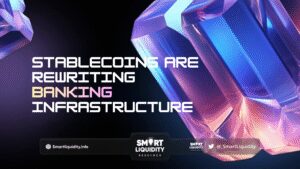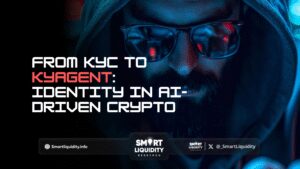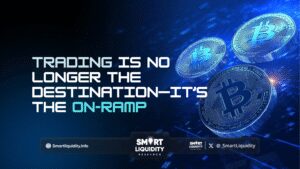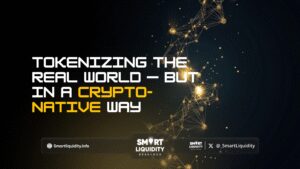Exploring the Expansion of Solana’s Ecosystem


Since its 2020 launch, Solana has emerged as a leading high-performance blockchain, known for its speed, low fees, and scalability. It’s rapidly attracting developers and users as a viable alternative to pricier, slower networks like Ethereum. Solana now powers a growing ecosystem in DeFi, NFTs, Web3, gaming, and more.
Solana’s Core Technology: A High-Performance Blockchain
At the foundation of Solana’s success is its unique and robust technical architecture. Designed to solve the blockchain trilemma—balancing decentralization, scalability, and security—Solana delivers performance that outpaces many of its peers.
Key Technological Features:
- Proof of History (PoH): A cryptographic clock that timestamps transactions before consensus, dramatically increasing throughput and reducing latency.
- Turbine: A block propagation protocol that breaks data into packets, improving speed and reliability in data transmission across nodes.
- Sealevel: A parallel runtime environment allowing simultaneous smart contract execution, maximizing hardware efficiency and reducing bottlenecks.
- Tower BFT: A consensus algorithm based on Practical Byzantine Fault Tolerance (pBFT) optimized for PoH.
These elements enable Solana to process up to 65,000 transactions per second (TPS) with sub-cent transaction fees, making it ideal for applications requiring speed and scale.
DeFi’s Rapid Growth on Solana
Decentralized finance has exploded across the blockchain industry, and Solana has emerged as a serious contender in the DeFi race. While Ethereum still leads in total value locked (TVL), Solana has become the go-to for projects that prioritize speed and low costs.
Leading DeFi Projects on Solana:
- Serum: A decentralized exchange (DEX) developed by FTX and Alameda Research, Serum utilizes a central limit order book (CLOB) model while leveraging Solana’s speed for instant trades.
- Raydium: An AMM and liquidity provider that interacts directly with Serum’s order book, enabling both traditional liquidity pools and CLOB functionality.
- Solend: A decentralized lending and borrowing platform, often referred to as Solana’s equivalent to Compound or Aave.
Solana’s infrastructure allows these platforms to offer a near-instant user experience with micro-fees—crucial for retail users and high-frequency DeFi traders.
Table: Comparison of Key DeFi Platforms on Solana
Platform | Key Features | Total Value Locked (TVL) | Unique Selling Point |
Serum | DEX, Limit Orders, Cross-Chain | ~$400 million | CLOB model with lightning speed |
Raydium | AMM, Yield Farming, Dual Liquidity | ~$300 million | Integrates AMM with order books |
Solend | Lending, Borrowing, Interest Protocol | ~$150 million | Optimized for efficiency and speed |
As of mid-2025, dozens of other DeFi apps are actively launching on Solana, further increasing composability and liquidity depth.
NFTs: Building Solana’s Cultural and Creative Identity
Non-fungible tokens have created a seismic cultural shift, and Solana has successfully carved out a significant niche in the NFT landscape. While Ethereum initially dominated this space, high gas fees have pushed artists and collectors to explore Solana as a faster and cheaper alternative.
Prominent Solana NFT Projects:
- Solana Monkey Business: Among the first successful NFT collections on Solana, celebrated for its community governance and brand recognition.
- Degenerate Ape Academy: A whimsical and bold series that helped introduce Solana NFTs to a broader audience.
- Okay Bears: A standout success that generated millions in volume and helped bridge Solana NFTs into mainstream Web3 culture.
NFT Marketplaces on Solana:
- Magic Eden: The leading NFT marketplace on Solana, known for its user-friendly interface, launchpad features, and competitive trading fees.
- Solanart: One of the earliest Solana-native NFT platforms, offering curated collections and lower transaction friction than Ethereum-based marketplaces.
The flourishing NFT space on Solana signals not just financial innovation but a growing sense of cultural identity and community building.
Web3 Innovation and Developer Ecosystem
Solana’s expansion isn’t just technical—it’s philosophical. The Web3 movement seeks to redefine how the internet operates, shifting control from centralized corporations to users and developers. Solana’s speed and scalability make it an ideal platform for building the decentralized internet.
Developer-Friendly Tools and Resources:
- Solana CLI & SDKs: Comprehensive toolkits supporting Rust, C, and C++.
- Anchor Framework: A Rust-based framework that simplifies Solana smart contract development, akin to Hardhat for Ethereum.
- Hackathons and Grants: The Solana Foundation hosts global hackathons and funding rounds that incentivize innovation across sectors, from DeFi to gaming to infrastructure.
Thousands of developers are now building on Solana, creating dApps in identity, messaging, payments, and DAOs. The onboarding process has become increasingly accessible, with better tooling, educational content, and community support than ever before.
Cross-Chain Integration and Interoperability
One of the biggest limitations of early blockchain platforms was their siloed nature. Solana addresses this with active cross-chain development, recognizing that interoperability is essential for mass adoption.
Key Bridges and Protocols:
- Wormhole: A decentralized messaging protocol connecting Solana with Ethereum, BNB Chain, Polygon, and more—enabling asset transfer and data flow across ecosystems.
- Allbridge: A user-friendly bridge facilitating multichain liquidity provision and token migration.
- Portal Bridge: Powered by Wormhole, enabling wrapped asset transfers and unlocking liquidity between Layer-1 and Layer-2 chains.
These tools are critical in unifying the fragmented blockchain landscape and ensuring that Solana plays a central role in the multichain future.
Future Outlook: Challenges and Opportunities Ahead
Solana’s ecosystem has expanded rapidly, but it faces several challenges as it continues to scale.
Key Focus Areas:
- Network Stability: Solana has experienced outages in the past due to bot activity and overload. While upgrades like Firedancer (a high-performance validator client) aim to resolve this, reliability remains a top priority.
- Decentralization: As the ecosystem grows, ensuring validator distribution and minimizing central points of failure are essential for maintaining trust.
- Regulation: Like all crypto ecosystems, Solana-based projects must navigate an evolving regulatory environment, especially in the U.S. and EU.
Despite these hurdles, the opportunities are immense. New initiatives like Solana Mobile (Saga phone) and Solana Pay (crypto-native payment rails) reflect Solana’s ambitions beyond the blockchain—toward real-world adoption.
Conclusion
The expansion of Solana’s ecosystem is a case study in how performance, innovation, and community-building can converge to fuel exponential growth. What started as a high-speed blockchain has evolved into a vibrant and diversified ecosystem of DeFi apps, NFT marketplaces, developer tools, and cross-chain infrastructure.
Solana continues to attract the attention of institutional investors, developers, and crypto enthusiasts who see its potential to support next-generation internet experiences. With continued improvements in network stability, developer engagement, and interoperability, Solana is poised not just to compete—but to lead.
Whether you’re a builder, investor, or user, there’s never been a more exciting time to explore what Solana has to offer.




